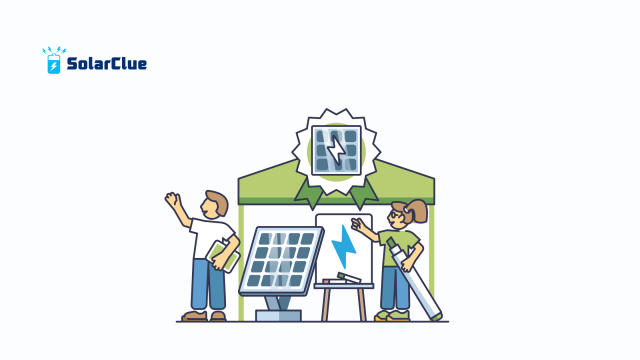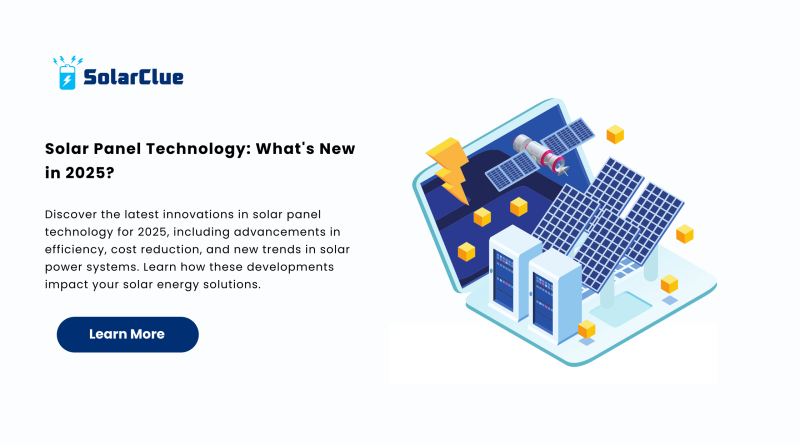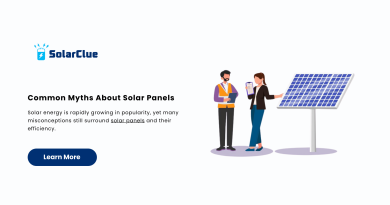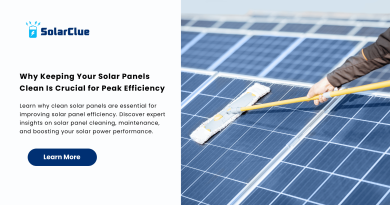Solar Panel Technology: What’s New in 2025?
The solar power industry continues to evolve rapidly, with new innovations and breakthroughs shaping the future of energy generation. As we step into 2025, solar power systems are becoming more efficient, affordable, and accessible. Solar panel technology has seen remarkable advancements, and these developments are making solar energy a more viable solution for homes, businesses, and industries alike. This blog will explore the key trends in solar panel technology, focusing on the latest innovations, their impact, and what the future holds for solar power.
Table of Contents
Advancements in Solar Panel Technology
Solar panel technology has been evolving for decades, and 2025 brings exciting new possibilities. Below are the major trends that are defining solar panels and solar power systems in 2025:
1. Increased Efficiency of Solar Panels
One of the most significant advancements in solar panel technology is the increase in efficiency. Traditional solar panels typically have an efficiency rate of around 15-20%. However, with new innovations in photovoltaic cells, solar panels in 2025 can reach efficiencies of up to 30%. The introduction of bifacial solar panels, which capture sunlight from both sides of the panel, has helped improve energy capture and overall efficiency. These panels are designed to harness reflected light from the ground or surrounding surfaces, making them more effective than traditional mono-facial panels.
2. Perovskite Solar Cells: A Game Changer
Perovskite solar cells have emerged as a breakthrough in solar technology. These cells are made from a unique material that has the potential to revolutionize solar power systems. They are cheaper to produce than traditional silicon-based panels, and their efficiency is rapidly improving. By 2025, perovskite solar cells are expected to be commercially available, making solar power more affordable and widespread.
3. Solar Panels with Integrated Energy Storage
Energy storage has always been a challenge for solar power systems. However, in 2025, the integration of solar panels with energy storage is becoming more common. New solar panel systems are being designed with built-in batteries that can store energy for later use. This allows homeowners and businesses to use solar energy even during nighttime or cloudy days, improving the overall functionality of solar power systems.
4. Flexible Solar Panels
Flexible solar panels are revolutionizing the way solar power systems can be used. These lightweight and adaptable panels can be installed on a variety of surfaces, including curved or irregularly shaped roofs. This makes them ideal for applications where traditional rigid panels may not be suitable, such as portable solar power systems or on vehicles like cars and boats.
The Benefits of Solar Power Systems in 2025
As solar panel technology continues to improve, the benefits of adopting solar power systems are becoming more apparent. Here are some of the key advantages of solar power in 2025:
1. Lower Costs and Greater Affordability
The cost of solar panels has been decreasing steadily over the years. As of 2025, the price of solar power systems is more affordable than ever before, making solar energy accessible to a wider range of consumers. Governments worldwide are also offering incentives and subsidies to make solar panel installation more cost-effective for homeowners and businesses.
2. Environmental Impact Reduction
Solar power is a clean, renewable energy source that helps reduce reliance on fossil fuels. By switching to solar power systems, individuals and businesses can significantly reduce their carbon footprint. As we strive for a more sustainable future, solar energy is at the forefront of reducing greenhouse gas emissions and mitigating climate change.
3. Energy Independence
By installing solar panels, you can generate your own electricity and reduce dependence on the grid. This is particularly beneficial in areas with unreliable power supply or during times of grid outages. In 2025, solar power systems are more reliable, with enhanced storage and energy management solutions, allowing for greater energy independence.

Key Trends Shaping Solar Panel Systems in 2025
1. Smart Solar Panels and Energy Management
The integration of smart technology with solar power systems is becoming more common. In 2025, smart solar panels equipped with sensors and AI-driven energy management systems will optimize energy production and consumption. These systems can adjust the energy output based on weather conditions, time of day, and energy demand, ensuring maximum efficiency.
2. Solar Panel Systems for Commercial Use
Commercial solar power systems are becoming more advanced, providing businesses with large-scale solutions that lower operational costs. In 2025, businesses are increasingly adopting solar panels to reduce their carbon footprints and save on electricity costs. The trend toward commercial solar installations is expected to grow as companies look for sustainable energy solutions.
3. Floating Solar Power Systems
Floating solar power systems are an emerging trend in the solar industry. These systems are installed on bodies of water such as lakes or reservoirs, where they can harness sunlight while avoiding land use. Floating solar panels are a great solution for areas with limited space for traditional rooftop installations. By 2025, floating solar systems are expected to become more widespread and efficient.
FAQs About Solar Panel Technology in 2025
Q1: What are the latest advancements in solar power technology?
In 2025, the major advancements in solar panel technology include higher efficiency rates, the use of perovskite solar cells, integrated energy storage, and flexible solar panels.
Q2: How do perovskite solar cells differ from traditional solar panels?
Perovskite solar cells are made from a unique material that is cheaper to produce and can achieve higher efficiency than traditional silicon-based solar panels. They are also lighter and more flexible.
Q3: Are solar panels in 2025 more affordable?
Yes, the cost of solar power systems has decreased significantly, making them more affordable for both residential and commercial use.
Q4: How can solar power systems contribute to sustainability?
Solar power systems provide a clean, renewable energy source that reduces reliance on fossil fuels and lowers greenhouse gas emissions, contributing to a more sustainable future.
Q5: Can I install solar panels with energy storage in 2025?
Yes, many solar power systems now come with integrated energy storage, allowing you to store excess energy for use during non-sunny periods, ensuring a consistent power supply.
Conclusion: The Future of Solar Panel Technology
As solar power technology continues to evolve, 2025 promises to bring even greater innovations that make solar energy a viable and sustainable solution for the future. With advancements in efficiency, affordability, and storage capabilities, solar power systems are becoming more accessible and effective than ever before. Whether you’re looking to power your home or business, solar panel technology offers a future-proof energy solution that benefits both the environment and your wallet.
To learn more about how solar panel technology can transform your energy consumption, visit SolarClue.com. Discover the best solar solutions for your needs and stay ahead of the curve with the latest innovations in solar power. Check out our blog at blog.solarclue.com for more in-depth articles and insights into solar energy.



